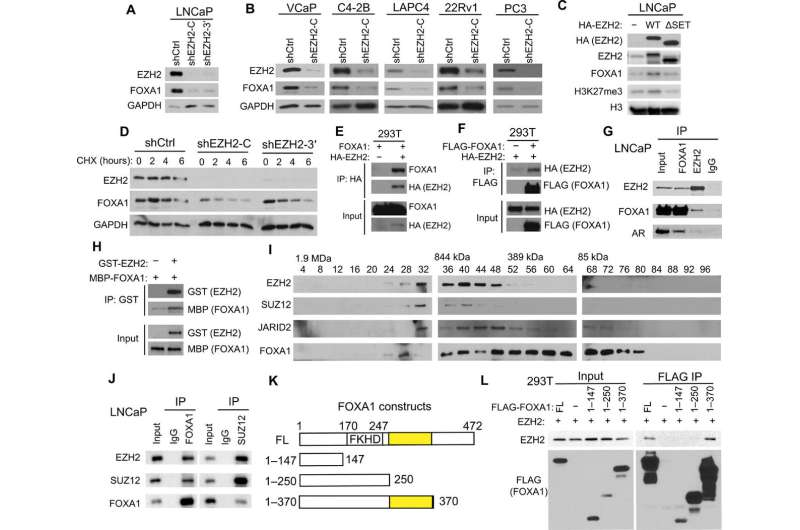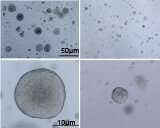
Northwestern Medicine scientists have discovered a mechanism that makes a prostate cancer-causing protein called FOXA1 more resilient, according to a study published in Science Advances.
The findings shed light on why some prostate cancers don’t respond to certain drugs and chart a path to a possible future therapy, according to Jindan Yu, MD, Ph.D., professor of Medicine in the Division of Hematology and Oncology and senior author of the study.
“This shows how FOXA1 is stabilized so it can promote cancer growth,” said Yu, who is also a professor of Biochemistry and Molecular Genetics and a member of the Robert H. Lurie Comprehensive Cancer Center of Northwestern University.
FOXA1 is a key regulator of the cell cycle, promoting cell growth and proliferation. In some prostate cancers, FOXA1 is upregulated and fuels cancer growth, but the specific pathways that cause its upregulation were unknown, according to Yu.
Using a broad array of biochemistry assays, the investigators discovered that FOXA1 is a primary non-histone target of EZH2, a regulatory enzyme known to methylate histones to promote prostate cancer growth. Specifically, EZH2 methylates FOXA1, which helps remove an ubiquitin tail on FOXA1, eliminating one of the most common methods by which proteins are degraded.

“Normally, this ubiquitin tail is attached to the protein which leads it to the proteasome to be degraded,” Yu said. “This little tail is removed so it is more stable in the cells.”
EZH2 inhibitors have shown limited efficacy in prostate cancer cells. In FOXA1-driven cancers, however, Yu said she believes this inhibitor could be more effective. Further, combining this inhibitor with a de-ubiquitinase inhibitor that limits EZH2’s ability to stabilize FOXA1 produced even better results in human and mouse models of prostate cancer.
Source: Read Full Article